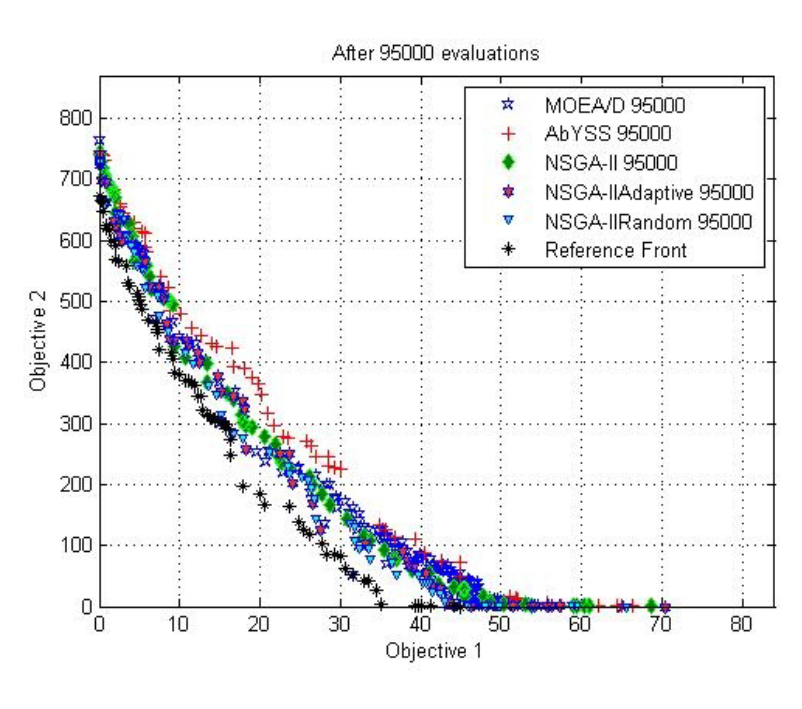 |
|
Cellular Automata (CA) models can represent dynamic systems which are discrete in space and time that reflects the effect of intrinsic parameters where individual events are considered to occur from randomness. A CA model of two agents’ chemical kinetics has been optimized earlier using NSGA-II based on Genetic Algorithm (GA). But the stochastic nature of the CA model along with its high sensitivity on the model parameters requires extensive investigation using different optimization algorithms. For this purpose, in the current study, four more recently developed and popular optimization algorithms based on GA, called NSGA-IIr, NSGA-IIa, AbYSS, and MOEA/D, have been considered for investigation based on various performance measuring parameters. The study also compares the performances of the algorithms for different computational efforts with an objective to minimize the required number of objective function evaluations. Simulation results show NSGA-IIr as the best choice to optimize the CA model for 75000 objective function evaluations. Such results facilitate the use of stochastic CA models to represent complex (bio)-chemical networks.
Keywords: Cellular Automata, Genetic Algorithm, NSGA-IIr, Biochemical Kinetics, Stochastic Modeling.
.
|
|
 |

